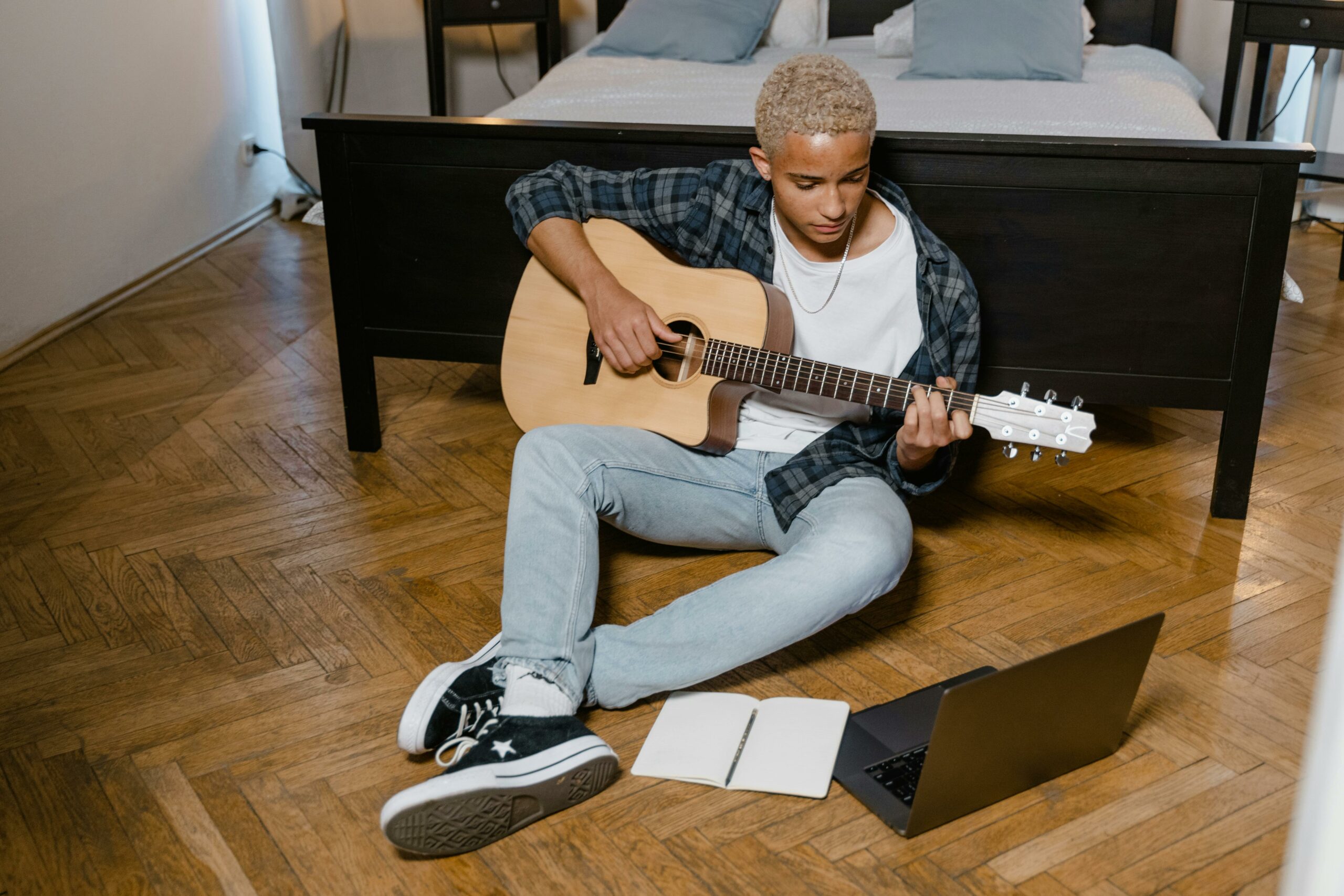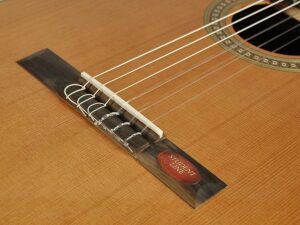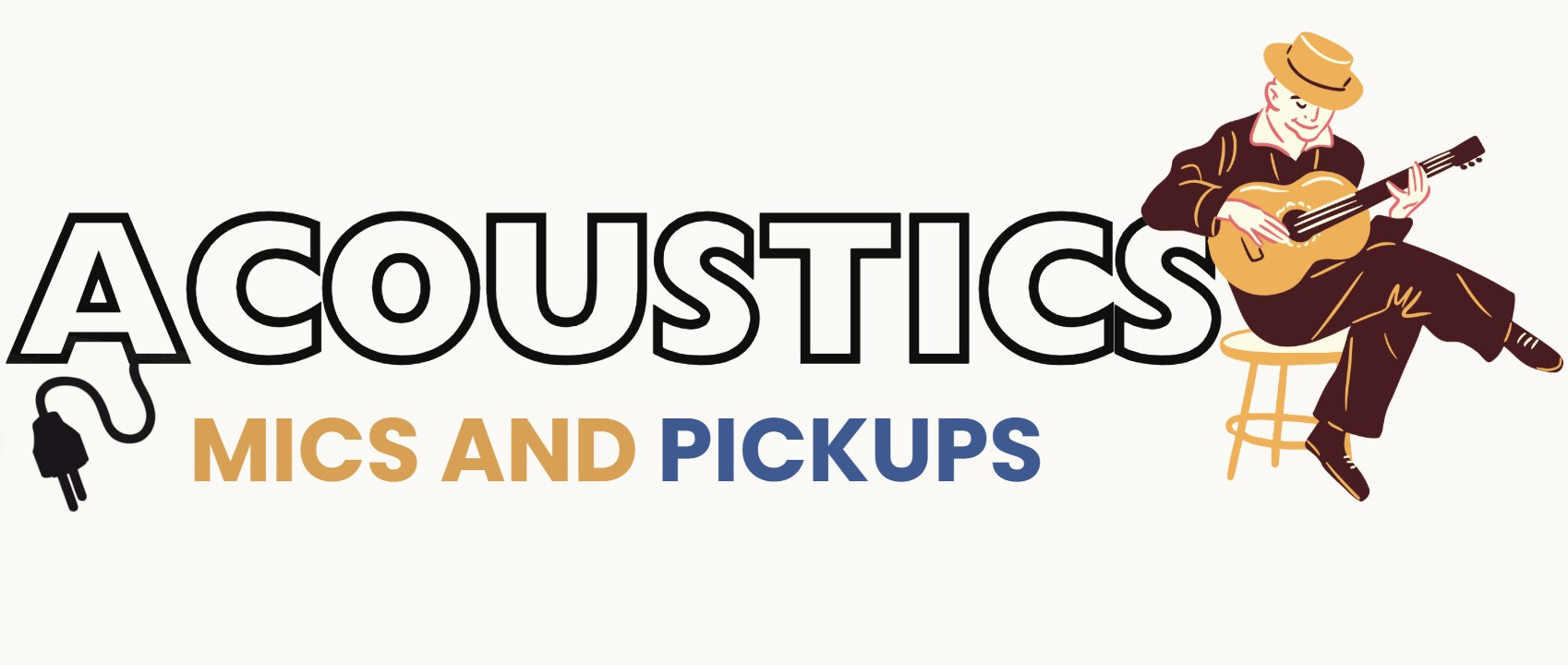Learning to play guitar alone: 3 questions to ask yourself


Aaking up the guitar on your own can be a real challenge, whatever your age. Music theory and sheet music scare you? Don't worry! By mastering chords chords, you'll be able to read tablatures and you'll soon be enjoying yourself. Methods oflearning are numerous, and learning to play this instrument self-taught is entirely possible. Just ask yourself the right questions, and you'll learn the ropes.
1. Why do I want to learn guitar on my own?
It may seem a surprising question, but it's a crucial one! It's always easier to take guitar lessons with a teacher. However, there are many reasons for learning an instrument independently: lack of financial means, a busy or changing schedule, a personal challenge, a geographical location far from a music school, the need for flexibility...
In any case, set yourself clear, precise objectives (short- or medium-term) to keep yourself motivated, which remains a major factor in this kind of project. They'll keep you in a constructive frame of mind.
Even when learning on your own, don't forget to :
- Plan a weekly practice time
- Play regularly
- Make sure you have a serene space in which to exercise
- Staying motivated
- Exchanging ideas with neophytes or more experienced players
It's very important to acquire the right reflexes from the outset, and to be vigilant. After all, you're embarking on a solitary venture, and you don't have a teacher to correct you immediately.
2. What are the advantages of learning guitar on your own?
Thanks to the Internet and social networks, the benefits can be many. If you're practicing solo, you've got several learning methods at your disposal, so you might as well take advantage of them!
A wide range of resources
From a distance, there are many ways to learn to play the guitar for free:
- Tutorials/videos: easily accessible, they are often accompanied by tablatures or practical exercises.
- Applications: they can be equipped with sound recognition, so you can keep track of your progress.
- Articles/blogs: they'll give you useful tips.
- Communities/social networks: being part of a community can help you ask questions of people who are more expert than you.
Different styles of music
You have time to try out different musical styles and learn the song that makes you happy. French music, film music, rock, folk, etc. But be careful not to overestimate your skills. Opt instead for easy-to-play or beginner melodies and practice them. In this way, you'll build up a personal repertoire that will make you want to go on and share.
Another great advantage is that you can practice singing your favorite tune. Accompanying your practice with singing can be extremely pleasurable!
A choice of brands
You also have the opportunity to learn about many different instruments. Classical, folk, electric: the choice is immense. There are even 7-string guitars like the Salvador Cortez Concert Series CS607. The latter is quite rare, but you'll find it on our site.
In any case, the classical guitar is undoubtedly the best choice. Nylon strings are less harsh to the touch, and you can find an instrument of excellent craftsmanship on a budget.
Many entry-level guitars offer excellent value for money. The guitar Salvador Cortez CC-10 or the Solid Top Artist Séries CC-15 are excellent products for beginners. You can resell them before moving upmarket with, for example, the Sonata S by Salvador Cortez. The best thing, of course, is to try out the instrument. Sound, sustain, touch: there are many criteria to consider.
3. How long does it take to learn to play guitar on your own?
There is no precise answer. Keep in mind that the worst mistake you can make is to cut corners!
Guitar chords to learn first
It is always advisable to learn the eight basic chords (5 major and 3 minor). Not only will they motivate you when you get them to sound in harmony, but they're also the chords most often played by all guitarists! Don't try to cross out other, more complicated chords: they can quickly discourage you.
Link chords and keep the rhythm
Then try to link these chords together, varying very simple rhythms such as 4 or 2 beats. Don't be in a hurry, play softly and try to position your fingers correctly. The aim is to make the chord sound good. In this way, you'll work on your dexterity and enjoy your playing more and more. Isn't that the point?
Regularity
There's no surprise here: the more regularly you play, the faster you'll progress. Take it slowly and don't get discouraged! The guitar is not an easy instrument. Unlike a digital piano for example, the note you play won't be immediately pleasant to hear.
In conclusion, you have the opportunity to progress at your own pace, according to your availability, while preserving your family and professional life. You can personalize and vary your learning methods. In any case, treat yourself!
Feel free to visit my store to compare models or contact for more information.










































